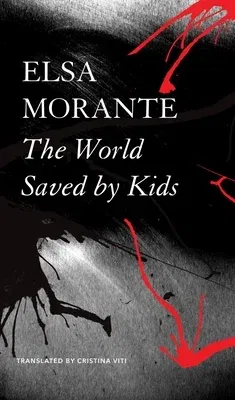A representative text of a milieu marked by student protests and
aspirations for moral and political renewal.
First published in Italian in 1968, The World Saved by Kids was
written in the aftermath of deep personal change and in the context of
what Elsa Morante called the "great youth movement exploding against the
funereal machinations of the organized contemporary world." Morante
believed that it was only the youth who could truly hear her
revolutionary call. With the fiftieth anniversary of the tumultuous
events of 1968 approaching, there couldn't be a more timely moment for
this first English translation of Morante's work to appear.
Greeted by Antonio Porta as one of the most important books of its
decade, The World Saved by Kids showcases Morante's true mastery of
tone, rhythm, and imagery as she works elegy, parody, storytelling,
song, and more into an act of linguistic magic through which Gramsci and
Rimbaud, Christ and Antigone, Mozart and Simone Weil, and a host of
other figures join the sassy, vulnerable neighborhood kids in a renewal
of the word's timeless, revolutionary power to explore and celebrate
life's insoluble paradox.
Morante gained international recognition and critical acclaim for her
novels History, Arturo's Island, and Aracoeli, and The World
Saved By Kids may be her best book and the one that most closely
represents her spirit.

